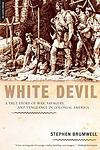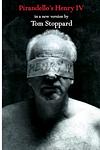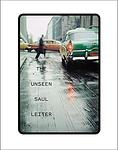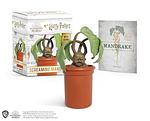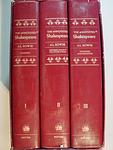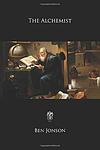The Greatest Italian, English "Drama" Books of All Time
Click to learn how this list is calculated.
This list represents a comprehensive and trusted collection of the greatest books. Developed through a specialized algorithm, it brings together 300 'best of' book lists to form a definitive guide to the world's most acclaimed books. For those interested in how these books are chosen, additional details can be found on the rankings page.
Genres
Drama is a genre of literature that typically deals with serious and emotional themes, often exploring the complexities of human relationships and the struggles individuals face in their lives. These books often feature intense character development and intricate plotlines, delving into the depths of human experience and the challenges of navigating the world around us. From family dramas to political intrigue, the drama genre encompasses a wide range of stories that aim to captivate readers with their raw and powerful storytelling.
Countries
Date Range
Reading Statistics
Click the button below to see how many of these books you've read!
Download
If you're interested in downloading this list as a CSV file for use in a spreadsheet application, you can easily do so by clicking the button below. Please note that to ensure a manageable file size and faster download, the CSV will include details for only the first 500 books.
Download-
1. Six Characters in Search of an Author by Luigi Pirandello
In this metatheatrical play, six characters come to life and demand that a theater director tell their tragic story, which was left incomplete by their author. As the director and his actors interact with these characters, the boundaries between fiction and reality blur, leading to a philosophical exploration of the nature of human identity, the reliability of art, and the unreliability of perception. The characters' story, involving a complex web of familial relationships, adultery, and suicide, further complicates the narrative, challenging the audience's understanding of truth and illusion.
-
2. My Brilliant Friend by Elena Ferrante
This novel tells the story of two friends, Elena and Lila, growing up in a poor neighborhood in Naples, Italy in the 1950s. Their intense, complicated friendship is marked by competition, mutual respect, and deep affection. As they navigate the challenges of adolescence, including family drama, academic struggles, and romantic entanglements, their bond is tested and transformed. The narrative explores themes of female friendship, social class, education, and the struggle for personal autonomy in a patriarchal society.
-
3. The Time of Indifference by Alberto Moravia
This novel explores the dynamics of an upper-middle-class Italian family facing financial ruin. The story focuses on the emotional indifference and moral decay among family members, as they engage in affairs and manipulative behavior to secure their social status. As the family's fortunes dwindle, their lack of empathy and moral integrity becomes increasingly evident, offering a critique of bourgeois values and the corrosive effects of apathy and materialism.
-
4. Silk by Alessandro Baricco
"Silk" is a historical fiction novel that tells the story of a 19th-century French silkworm merchant who travels to Japan for business. During his travels, he becomes enamored with a mysterious woman. His unrequited love for her haunts him for the rest of his life, even as he returns to France and continues his life there. The novel explores themes of love, longing, and the profound impact that brief encounters can have on one's life.
-
5. The White Devil by John Webster
"The White Devil" is a gripping and darkly captivating play that delves into the themes of revenge, corruption, and deceit. Set in 16th century Italy, the story follows the lives of two powerful families, the Brachiano and the Medici, as they engage in a web of treachery and manipulation. As tensions rise and secrets unravel, the characters are consumed by their own desires, leading to a tragic and bloody climax. With its complex characters and intricate plot, "The White Devil" explores the depths of human nature and the destructive consequences of unchecked ambition.
-
6. Bébo's Girl by Carlo Cassola
"Bébo's Girl" is a poignant tale set in the backdrop of World War II, focusing on the relationship between a young partisan, Bebo, and Mara, a simple and innocent country girl. Their love story unfolds amidst the grim realities of war, where Bebo's commitment to his cause often conflicts with the peaceful life he desires with Mara. The narrative explores themes of love, sacrifice, and the devastating impact of war on personal lives, ultimately leading to a tragic end.
-
7. The Neapolitan Novels by Elena Ferrante
"The Neapolitan Novels" is a four-part series that explores the intricate and lifelong friendship between two women from Naples, Italy. The series spans several decades, beginning in the 1950s, and provides a detailed examination of the women's lives, struggles, and the societal pressures they face. The narrative delves into themes of identity, friendship, love, violence, and socio-political changes in post-war Italy. The series is known for its rich character development and vivid portrayal of female friendship.
-
8. Troubling Love by Elena Ferrante
This novel follows a woman who returns to Naples after her mother's mysterious death, determined to understand the enigmatic life her mother led. As she delves into her mother's past, she uncovers a web of secrets and discovers more about her own identity in the process. The narrative explores themes of mother-daughter relationships, identity, and the power of the past.
-
9. The Changeling by Thomas and William Rowley Middleton
"The Changeling" is a Jacobean tragedy that delves into themes of love, betrayal, and madness. The narrative centers around Beatrice-Joanna, a young woman who falls in love with Alsemero while being betrothed to another man, Alonzo. Desperate to be with her true love, she enlists the help of her father's disfigured servant, De Flores, to murder Alonzo. However, this act of violence sets off a chain of deceit and horror, as De Flores demands Beatrice-Joanna's virginity as payment for his crime. The play intertwines this main plot with a subplot set in a madhouse, using the setting to explore the thin line between sanity and insanity, ultimately leading to a tragic conclusion where the consequences of the characters' actions catch up with them.
-
10. Novecento by Alessandro Baricco
The book is a poignant monologue that tells the story of a gifted pianist born on a transatlantic liner in the early 20th century. Abandoned at birth, he is named after the year of his birth and grows up on the ship, never setting foot on land. His extraordinary talent for piano captivates everyone who hears him play, and his music becomes legendary among travelers and crew alike. The narrative, recounted by a fellow musician and friend, explores themes of belonging, the meaning of home, and the transcendent power of music to connect people across the boundaries of time and space.
-
11. Henry Iv by Luigi Pirandello
In this novel, the protagonist is a man who, after an accident during a historical pageant, comes to believe himself to be the medieval German emperor Henry IV. For twenty years, he lives in a villa with attendants who indulge his delusion. The story delves into themes of madness, reality, and illusion as characters from his past attempt to cure him, leading to a complex examination of the nature of sanity and the role that personal mythologies play in our lives. As the line between the protagonist's delusion and the reality of those around him blurs, the narrative raises profound questions about the nature of identity and the masks people wear in society.
-
12. Accidental Death Of An Anarchist by Dario Fo
In this satirical farce, an eccentric and quick-witted man, referred to as the Maniac, infiltrates a police station where an anarchist railway worker's death is being investigated. The authorities claim the anarchist died by suicide, having jumped out of a window during an interrogation. However, the Maniac cleverly impersonates various officials, manipulates the policemen, and exposes the absurdities and contradictions in their stories, suggesting that the anarchist's death was not an accident but a cover-up of police brutality. The play uses sharp humor and slapstick to critique corruption and the misuse of power within the establishment, ultimately questioning the integrity of the police and the justice system.
-
13. The Malcontent by John Marston
"The Malcontent" is a Jacobean-era tragicomedy that delves into themes of political intrigue, revenge, and moral corruption within a court setting. The play centers around the character Malevole, the disguised and deposed Duke Altofronto, who maneuvers through a web of deceit as he seeks to expose the hypocrisy and villainy of those who usurped his throne. Through a series of satirical and darkly humorous episodes, the protagonist navigates a treacherous court filled with unscrupulous characters, ultimately aiming to restore justice and reclaim his rightful position. The work is known for its biting wit, complex characterizations, and exploration of the human condition, reflecting the moral ambiguities of the time.
-
14. The Servant Of Two Masters by Carlo Goldoni
The play is a classic Italian comedy that revolves around the clever and resourceful Truffaldino, who seeks to serve two different masters simultaneously in the hope of doubling his income. The ensuing plot is a whirlwind of mistaken identities, love triangles, and comedic confusions. As Truffaldino scrambles to keep his dual employment a secret, the characters are entangled in a series of humorous situations involving love-struck young lovers, a feisty soubrette, and a pair of stern fathers. The play culminates in a series of revelations and reconciliations that restore social order and conclude with festive celebrations.
-
15. The Duchess Of Malfi by John Webster
The play is a dark Renaissance tragedy that tells the story of a young widow, the Duchess, who defies her two corrupt brothers by secretly marrying her steward, Antonio, with whom she has three children. Her brothers, one a twisted cardinal and the other a mentally unstable duke, are driven by greed and power. They employ a spy, Bosola, to uncover her secret, leading to a series of tragic events. The brothers' quest for control results in a bloody and vengeful cycle of murder, madness, and betrayal, ultimately leading to the downfall of almost every main character in a grim commentary on the corrupting nature of power and the vulnerability of women in a male-dominated society.
-
16. Saul by Vittorio Alfieri
"Saul" is a dramatic tragedy that unfolds in ancient Israel, focusing on the eponymous King Saul, who is tormented by jealousy and an obsession with the young David, the future king. The play delves into themes of power, madness, and divine will, as Saul's mental state deteriorates and his kingdom falls into chaos. His tragic flaw leads him to confrontations with his own family, his people, and ultimately, his downfall, as he grapples with the loss of God's favor and the rise of his successor. The narrative is a powerful exploration of human weakness and the destructive potential of unchecked emotions.
-
17. The Revenger's Tragedy by Cyril Tourneur
"The Revenger's Tragedy" is a dark and satirical Jacobean play that centers around a protagonist seeking vengeance for the death of his betrothed, who was poisoned by a corrupt and lascivious Duke. The protagonist, disguised and fueled by rage, navigates a court filled with depravity, plotting the downfall of his enemies. As he enacts his revenge, the play delves into themes of morality, justice, and the destructive nature of revenge itself, culminating in a bloody and dramatic conclusion that serves as a grim commentary on the decay of societal values.
-
18. Naked Masks by Luigi Pirandello
"Naked Masks" is a collection of five plays that delve into the complexities of human identity and the conflict between one's inner self and the roles imposed by society. The plays explore themes of madness, illusion, and existential uncertainty, often through characters who are caught in the tension between appearance and reality. The author uses the metaphor of the mask to represent the personas that individuals adopt in public, while questioning the nature of truth and the possibility of truly understanding oneself or others. The plays challenge audiences to consider the fluidity of identity and the performative aspects of everyday life.
-
19. Women Of Messina by Elio Vittorini
The novel explores the lives of a group of Sicilian villagers who return to their hometown after it was destroyed during World War II. As they rebuild their community amidst the ruins, they form a utopian society based on principles of equality and cooperation. However, their idealism is tested by internal conflicts and external pressures, including the influence of a mysterious woman who arrives in their midst. The narrative delves into themes of social reconstruction, the power of human solidarity, and the challenges of creating a new society while grappling with the scars of the past.
-
20. The Mandrake by Niccolo Machiavelli
"The Mandrake" is a satirical play that explores themes of corruption, deceit, and the manipulation of social norms. Set in Renaissance Italy, the story revolves around a young man who, desperate to win the affections of a beautiful but married woman, concocts a complex scheme involving a love potion derived from the mandrake root. With the help of a cunning rascal and a corrupt priest, the plan unfolds with a series of deceptions and moral compromises, ultimately questioning the true nature of virtue and vice in a society rife with hypocrisy. The play delves into the darker aspects of human behavior, using wit and humor to expose the lengths to which individuals will go to satisfy their desires.
-
21. Comedies, Tragedies, Poems by George Chapman
"Comedies, Tragedies, Poems" is a comprehensive collection of the dramatic and poetic works of a significant yet often overlooked figure from the English Renaissance. The book encompasses the full range of his literary output, featuring both his comedic and tragic plays that delve into themes of love, honor, and human folly, as well as his lesser-known but equally compelling poetry. The author's work is characterized by a robust and energetic use of language, a deep engagement with classical influences, and a unique blend of philosophical depth and dramatic intensity, which has earned him a place among the noteworthy contemporaries of Shakespeare.
-
22. 'Tis Pity She's A Whore by John Ford
The play is a tragic tale set in Parma, Italy, centered around the forbidden love between Giovanni and his sister Annabella. Despite societal taboos and the grave moral implications, the siblings embark on an incestuous relationship, which leads to Annabella's pregnancy. As the story unfolds, their secret is threatened by external suitors, family pressures, and societal expectations, resulting in a series of deceitful acts, betrayals, and violent outcomes. The play explores themes of passion, morality, and the devastating consequences of transgressing social boundaries, culminating in a dramatic and bloody conclusion that underscores the destructive power of forbidden love.
-
23. Born Twice by Giuseppe Pontiggia
The novel centers around a father's profound journey as he navigates the complexities of raising a son with cerebral palsy. The narrative delves into the emotional and social challenges they face, exploring themes of acceptance, resilience, and the redefinition of fatherhood. Through his son's condition, the father confronts his own vulnerabilities and the societal prejudices against disability, ultimately experiencing a profound transformation that leads him to a deeper understanding of love, identity, and the human experience.
-
24. The Alchemist by Ben Jonson
The book in question is a comedic play set in early 17th-century London, where a clever trio of con artists—Subtle, Face, and Dol—takes advantage of urban fear and superstition during a plague outbreak to swindle a series of gullible victims. Using the guise of an alchemist capable of performing miraculous transformations, the group promises wealth and power to their targets, spinning a web of deceit and exploiting human greed and folly. The play unfolds as a series of farcical episodes, culminating in the inevitable unraveling of their schemes, offering a satirical critique of human credulity and the pretensions of pseudo-science.
-
25. Edward Ii by Christopher Marlowe
The play is a historical tragedy that revolves around the reign of a flawed monarch whose personal weaknesses lead to his downfall. It explores the king's intense and controversial relationship with his favorite, Gaveston, which incurs the wrath of the nobility, his wife, and ultimately contributes to his loss of power. Themes of political ambition, betrayal, and the struggle for authority are central as the king's inability to manage his affections and the demands of his throne result in civil strife and his eventual violent demise. The play is a study of a ruler undone by personal failings and the ruthless machinations of those around him, set against the backdrop of the political complexities of medieval England.
Reading Statistics
Click the button below to see how many of these books you've read!
Download
If you're interested in downloading this list as a CSV file for use in a spreadsheet application, you can easily do so by clicking the button below. Please note that to ensure a manageable file size and faster download, the CSV will include details for only the first 500 books.
Download



